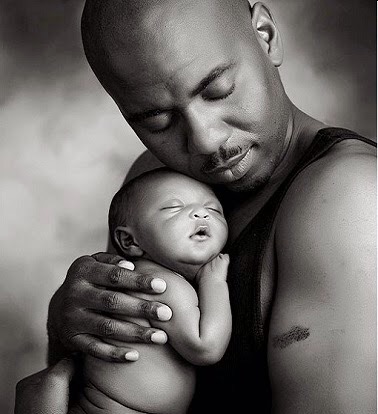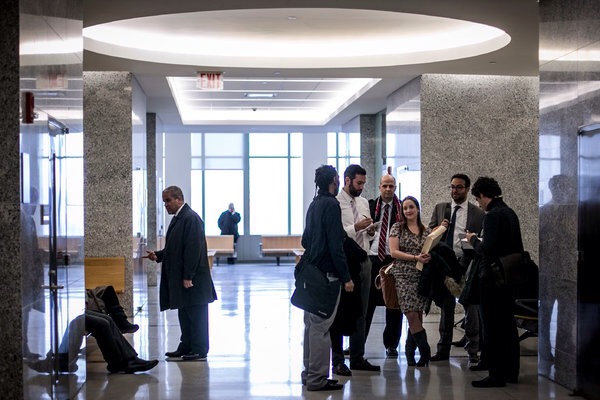This stuff just DOES NOT HAPPEN to those “opressed” white college women anywhere in our country. This doesn’t happen to people on the upper east side. This just does not happen to white men who are robbing people using tactics that are often unethical and questionably legal down in the Wall Street area.
Let’s just be really honest about this. This could be ME. Me, the family man just minding my damn business.
We need a police force, but they need to be held up to a higher standard.
I’m going to continue to teach my kids and mentees the reality of how to survive in modern America. The ugly truth will help them deal with life as a brown skinned person. Things aren’t always what they seem.
A Brooklyn man who claimed the police manufactured gun-possession charges against him had his case dismissed on Thursday, amid two investigations into the practices of a group of police officers in the 67th Precinct in East Flatbush.
The man, Jeffrey Herring, had maintained his innocence ever since his arrest on June 4, 2013, asserting that officers had planted the gun on him and fabricated the circumstances of his arrest.
The officers claimed that they got a tip from a confidential informer that Mr. Herring had a gun. Prosecutors had been instructed to bring the informer to court on Thursday; the defense had challenged whether that informer even existed.
At the hearing, prosecutors offered no evidence or mention of that informer.
“Based upon information provided to us by defense counsel” and on the office’s own investigation, said Paul Burns, an assistant district attorney, “we do not believe at this time that we can prove beyond a reasonable doubt the charges against Mr. Herring.”
Justice Dineen Riviezzo of State Supreme Court dismissed and sealed the case, saying she was “glad to hear there’s an ongoing investigation.”
In researching the case, a lawyer for Mr. Herring, Debora Silberman of Brooklyn Defender Services, found others that mirrored it, involving the same group of police officers. In the other cases, defendants also said the guns were planted, with the police saying that officers saw the suspects storing the guns in plastic bags or handkerchiefs.
After the arrests, more similarities arose: The use of confidential informers was suddenly mentioned months into the proceedings, and the informers were never produced in court even after judges’ and lawyers’ requests. Judges had called some of the police version of events “incredible,” and the accounts “extremely evasive.”
The Brooklyn district attorney, Kenneth P. Thompson, said, “We will investigate the arrest of Mr. Herring and other arrests by these officers because of the serious questions raised by this case.”
After inquiries from The New York Times, the Police Department opened an Internal Affairs Bureau investigation into the officers’ conduct.
As the charges were dismissed, Mr. Herring, 53, a rangy man dressed in gray slacks and a blue oxford, brought his hands up to his face, his eyes tearing up. If convicted of the top charge of gun possession, he could have faced up to 15 years in prison.
In 2013, Mr. Herring was arrested as he stood next to his bike outside his apartment on a sunny afternoon. He had just gone shopping, and had several plastic bags with him.
The police said Mr. Herring reached into a white plastic bag, removed a gun, put it in a black plastic bag and tossed that bag into the bushes as a plainclothes officer watched him.
Mr. Herring says he lives a quiet, nonviolent life, mostly taking care of his collie, Snowy. His last arrest, for drugs, was in 1997; he says he has been clean since then.
Eight months into the case, prosecutors gave defense lawyers papers showing that the police had requested a $1,000 tip for a confidential informer in this case. The informer had given a highly detailed description, according to the police paperwork, saying “one male black” matching Mr. Herring’s approximate age, height, weight, skin color, hairstyle and outfit, standing where Mr. Herring was standing, “near a bike with several shopping bags,” was carrying a firearm “believed to be a .380 caliber semiautomatic” that was “inside of a shopping bag.”
Police officers arrived about 10 minutes after the call. Mr. Herring “had conveniently not moved an inch, and then like clockwork, chose to display exactly what the supposed C.I. had described at exactly the right time,” Ms. Silberman and another lawyer, Scott Hechinger, wrote in a filing.
………
Leaving court on Thursday, Mr. Herring said, “I dreamed of this day.” However, he said, he was still thinking about two other defendants accused of gun possession by these police officers; while Mr. Herring had been out on bail as he fought his case, others spent far more time in jail.
One man, Eugene Moore, could not afford bail. He spent a year in jail until a hearing in which a judge said he did not find the testimony from a detective, Gregory Jean-Baptiste, “to be credible” and dismissed and sealed the case. Another man, John Hooper, also spent almost a year in jail after his arrest. After a hearing in which a justice said he found it “incredible that they thought it was a gun,” speaking of the officers, prosecutors offered Mr. Hooper time served and he accepted.
 On this day in 1950, the acclaimed English writer George Orwell died in London aged 46. He was born in 1903 as Eric Arthur Blair in Motihari, India, as his father was a colonial civil servant there, though moved to England while still an infant. The aspiring writer penned his first poem when he was four years old, and had his first poem published in a newspaper at age eleven. Blair studied at the prestigious Eton school, and went on to work for the imperial police in Burma. After he returned to England, he adopted the pseudonym George Orwell and published his first book – Down and Out in Paris and London – in 1933.
On this day in 1950, the acclaimed English writer George Orwell died in London aged 46. He was born in 1903 as Eric Arthur Blair in Motihari, India, as his father was a colonial civil servant there, though moved to England while still an infant. The aspiring writer penned his first poem when he was four years old, and had his first poem published in a newspaper at age eleven. Blair studied at the prestigious Eton school, and went on to work for the imperial police in Burma. After he returned to England, he adopted the pseudonym George Orwell and published his first book – Down and Out in Paris and London – in 1933. 





